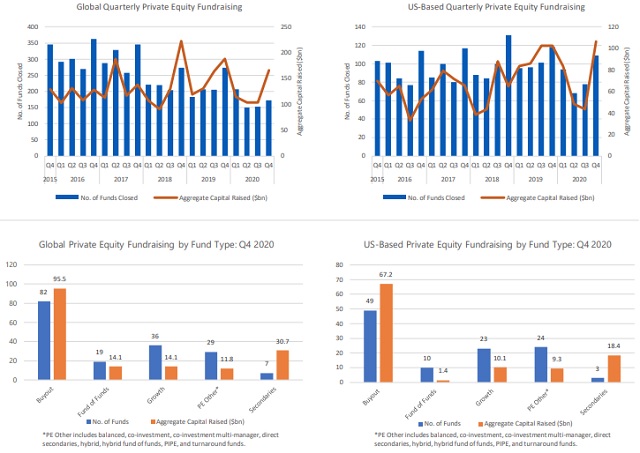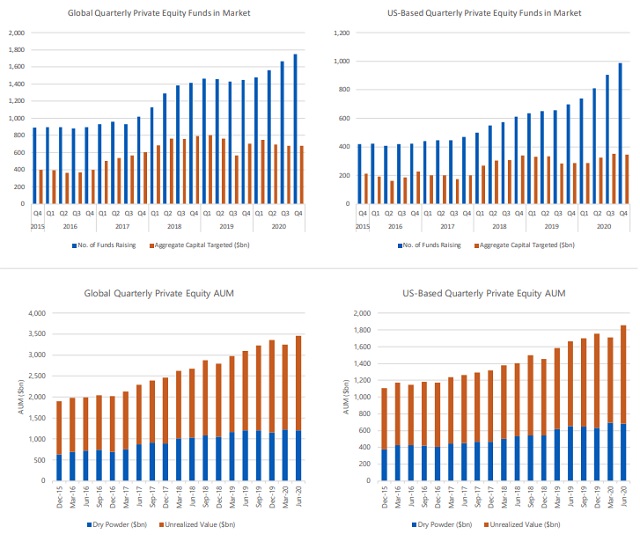Q4 Trends
- Fundraising. Private equity funds rebounded in
Q4.
- $166.2.bn was raised globally in Q4, up approximately 37% from the $103.9bn raised in Q3.
- The total amount of capital raised in 2020 was down 19% globally and 25% in the U.S. from the amount raised in 2019.
- Investor appetite was mostly targeted at buyout funds and secondaries funds, with increased interest in growth capital strategies.
- Secondaries funds raised $30.7bn globally in Q4, bringing the 2020 total to approximately $90bn.
- Dry Powder. Global private equity AUM reached an all-time high of $3.465tn at the end of Q2, while dry powder decreased 1.75% at the end of Q2 to $1.202tn.
- SPACs. According to SPAC Research, 248 special purpose acquisition companies (SPACs) were launched in 2020, raising approximately $83.4 billion. Approximately 30 of these were private equity-backed SPACS, raising nearly $7.7bn. At least 20 private equity-backed companies are expected to go public through a SPAC in 2021.

- Funds in Market. 84 private equity funds entered the global market during Q4, a 4.8% increase from Q3, resulting in the most funds in the market at any time over the last 5 years. Aggregate capital targeted in Q4 was just over $677.9bn.
- Diversity and Inclusion. Protests over racial injustice brought social factors and, in particular, diversity and inclusion to the forefront at private equity firms. Nearly 50 private equity firms and investors signed the Institutional Limited Partners Association's Diversity in Action initiative, pledging to promote diversity, equity and inclusion within their organizations.
- Impact Investing. LPs are increasingly calling for their investments to make a positive social or environmental impact alongside financial returns. Impact-investing funds have attracted more commitments than ever before, and impact strategies' popularity among private equity firms is growing.
- SEC Rulemaking. The SEC closed out 2020 with a flurry of rulemaking. Its new marketing rule replaces and modernizes the investment adviser advertising rule and cash solicitation rule. New amendments to the "private placement" rules simplify the integration framework for exempt and registered offerings (e.g., codifying the longstanding SEC position that concurrent Regulation D and Regulation S offerings will not be integrated so long as each complies with the applicable offering exemption).

The content of this article is intended to provide a general guide to the subject matter. Specialist advice should be sought about your specific circumstances.












